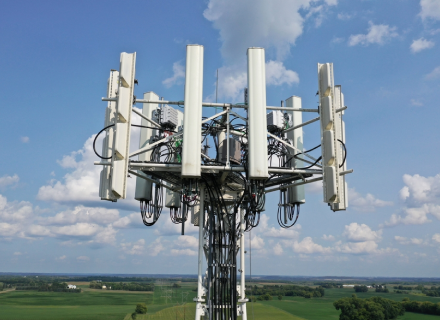SK Telecom, the telecommunications arm of SK Group, will push to create an artificial intelligence (AI) data centre hub for the Asia-Pacific region in South Korea, its chief executive officer (CEO) Ryu Young-sang has said, while outlining the vision, called the “AI infrastructure superhighway.”
The new strategy will be centred on creating comprehensive AI infrastructure integrating AI data centres, graphic processing units as a service (GPUaaS) and edge AI. Under the plan, the mobile carrier will build a hyperscale AI data centre with an electricity capacity of over 100 megawatts in the country and later expand the capacity to a gigawatt level.
“SK Telecom is working to build the AI infrastructure superhighway to help South Korea make a leap and become one of three global leaders in AI,” Ryu said at a Seoul conference, named “SK AI Summit.”
A testbed for the data centre will first open in Pangyo, south of the capital Seoul, and will be equipped with the latest semiconductors developed by Nvidia, along with cutting-edge technologies related to AI chips and data centres, the company told the media.
The Korean company also plans to transform its data centre in western Seoul into an AI data centre and provide GPUaaS in cooperation with global cloud provider Lambda starting in December 2024. SK Telecom will also invest a combined 100 billion won (USD 72.9 million) into developing a sovereign AI tailored to the needs of the Korean market in 2025.
“SK Telecom will also work to develop edge AI technology, which refers to a technology integrating telecommunications networks and AI computing, as part of efforts to apply the AI infrastructure on the sixth-generation network,” Ryu added.
SK Telecom also unveiled ‘Aster(A*)’, an artificial intelligence (AI)-driven personal assistant tailored for global users, at the “SK AI Summit 2024.” The product is scheduled for a closed beta launch in North America later 2024, with a full market launch planned for 2025.
“Aster is designed as an ‘Agentic AI,’ which goes beyond simple Q&A or search functions by understanding users’ intentions to set goals, make plans and complete tasks on their behalf,” the telecom player explained its new solution in the mentioned words.
The venture plans to further enhance Aster’s capabilities through partnerships with global search providers, LLM developers and third-party applications to establish a comprehensive AI ecosystem for North American users.
“With Aster, users are interacting with a single app, but they’re actually tapping into an extensive AI ecosystem,” said Chung Suk-Geun, head of the Global/AI Tech Business at SK Telecom.
Meanwhile, SK Telecom reached 16.58 million 5G subscribers, making up over 73% of its total user base. The numbers not only reflected strong growth in 5G subscriptions, but also highlighted SKT’s successful network expansion and user adoption.
The telecom company’s consolidated revenue increased by 2.9% to 4.5321 trillion South Korean Won, with operating income up 7.1%. This growth was bolstered by steady performance in the roaming and enterprise segments, along with efficiency improvements driven by AI implementation.
“SKT’s enterprise business expanded by 8%, with cloud services seeing substantial 30% YoY growth. AI-driven enterprise solutions are becoming a core part of SKT’s B2B business strategy, aimed at increasing orders across industries,” Telecomlead reported.

